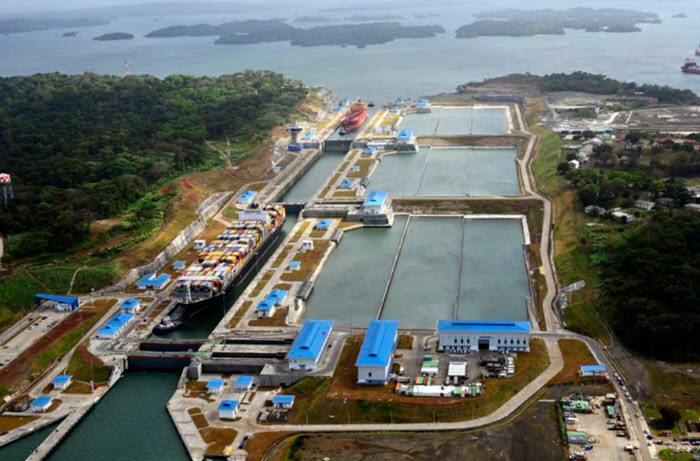With this in mind, the facility authorities worked modeling extreme conditions of lack of rain, in order to try to carry out the whole operation efficiently and guarantee the transit of ships in the future, Canal manager Ricaurte Vasquez explained to journalists.
On Monday, the Panama Canal Authority (ACP) will inform the results of the study and reveal the mechanism aimed at the reliability of this service under the most critical possible conditions of lack of water.
 Some of the experimental measures implemented were the stoppage of the hydroelectric plant of Gatun lake since October 2018; the removal of the hydraulic assistance of traditional locks and making simultaneous transits in them, for the rational use of water.
Some of the experimental measures implemented were the stoppage of the hydroelectric plant of Gatun lake since October 2018; the removal of the hydraulic assistance of traditional locks and making simultaneous transits in them, for the rational use of water.
Another action is the permanent use of the water-saving basins built as part of the expansion, which allows water recycling, which flows through the valves of the locks to the basins located at different heights and viceversa.
